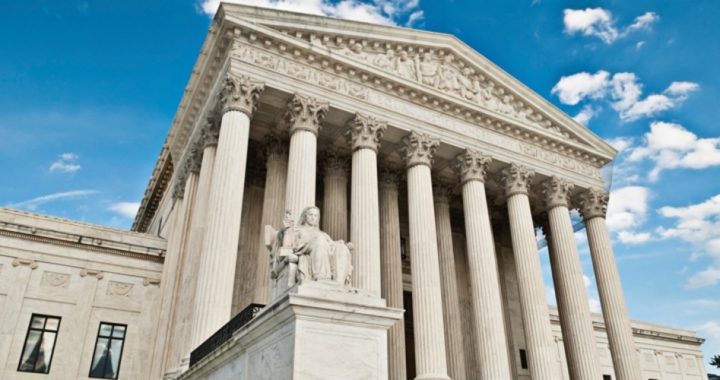
The U.S. Supreme Court has refused to consider a pair of lawsuits challenging a new law on the books in Mississippi that protects the religious beliefs of individuals involved in private business as well as government workers called upon to serve same-sex couples in ways they deem inappropriate to their convictions.
The lawsuits, filed by the Campaign for Southern Equality and Joshua Generation Metropolitan Community Church, came as a result of the passage of the “Protecting Freedom of Conscience from Government Discrimination Act” (HB 1523), which took effect in the state on October 10, 2017. On June 8 the High Court refused to hear an appeal of an early decision by the 5th U.S. Circuit Court of Appeals which allowed the law to stand.
The law bars discrimination complaints in Mississippi against businesses, organizations, or individuals that make decisions concerning services based on moral and religious convictions. The statute covers three major issues relative to religious freedoms: 1) that one’s sex or gender is defined at birth and cannot be changed; 2) that marriage is defined as the lifelong union of one man and one woman; and 3) that individuals who embrace those beliefs will be protected against discrimination in the state of Mississippi.
Among the areas covered by the law are issues concerning hiring, adoption, foster care, gender reassignment healthcare, and providing personal services or business, such as baking cakes or providing photography or other services for weddings. Additionally, under the law government employees who issue marriage licenses may recuse themselves from issuing a license to a same-sex couple, with the requirement that the clerks “take all necessary steps to ensure that the authorization and licensing of any legally valid marriage is not impeded or delayed as a result of any recusal.”
In its decision upholding the law, the 5th U.S. Circuit Court ruled that the plaintiffs had not demonstrated “an injury-in-fact caused by HB 1523 that would empower the district court or this court to rule on its constitutionality.” The justices added, however, that they did not “foreclose the possibility that a future plaintiff may be able to show clear injury-in-fact that satisfies the ‘irreducible constitutional minimum of standing,’ but the federal courts must withhold judgment unless and until that plaintiff comes forward.”
Attorney Kevin Theriot of Alliance Defending Freedom, a legal advocacy group that has defended religious liberty cases, applauded the Supreme Court’s decision not to hear the case, telling One News Now: “We think the Supreme Court did the right thing in allowing the 5th Circuit’s ruling to stand because there really is no constitutional crisis when a state like Mississippi decides to protect the religious convictions and moral convictions of people who believe in marriage between one man and one woman.”
By contrast, Masen Davis of the homosexual activist group Freedom for All Americans complained that the High Court refusal amounted to a “missed opportunity to swiftly strike down the nation’s most extreme anti-LGBTQ law.” Davis added that the Court’s refusal “means that LGBTQ Mississippians will continue to face harassment and discrimination. HB 1523 fails to honor the tradition of religious freedom in America — instead, it allows people to use religion as a license to discriminate.”
Similarly, attorney Beth Littrell of Lambda Legal said her group would continue to challenge the law. “We will keep fighting in Mississippi until we overturn this harmful law, and in any state where anti-gay legislators pass laws to roll back LGBT civil rights,” she said. “Unfortunately, the Supreme Court’s decision today leaves LGBT people in Mississippi in the crosshairs of hate and humiliation, delaying justice and equality.”
Earlier this term the Supreme Court heard oral argument in a high-profile case involving a Colorado baker who refused to provide a wedding cake for a homosexual couple because doing so would have violated his Christian convictions concerning marriage. A ruling in that case is expected this summer.



